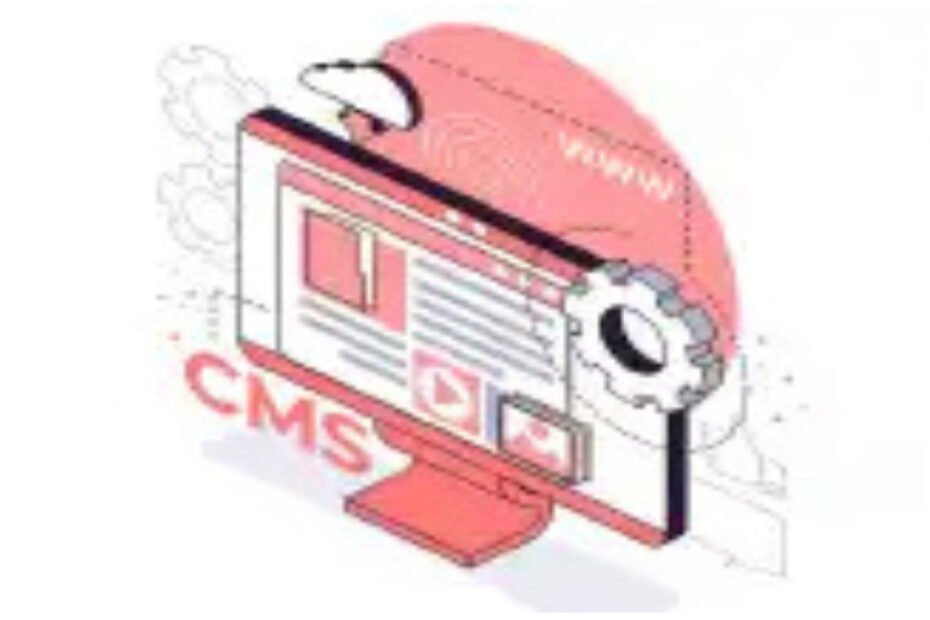Understanding what CMS is is essential for anyone who wants to create and manage a website in a practical and efficient way. That’s because, with a tool like this, you can customize the layout, organize content, and update your website’s information in just a few clicks.
In addition, the vast majority of CMS platforms available on the market offer interesting features that allow you to optimize the user experience and overall performance of your website.
In this article, we will explore in more detail what CMS is, how this system works, and present 5 of the best solutions available so you can start creating your website right now!
What is CMS?
CMS is short for Content Management System. As we have already pointed out, this tool allows you to create, edit, and manage website content quickly and easily, without the need to write lines of code or master programming languages.
These platforms are widely used to manage corporate websites, blogs, and even online stores (e-commerce), making them essential for those seeking ease and efficiency in online content management.
How does a CMS (Content Management System) work?
In short, a Content Management System works like a large intuitive editor. Through a main control panel, users can create new pages, write posts, add images and videos, and organize content in a practical and visual way, without having to deal with lines of code.
With this panel, it is possible to organize elements into categories, facilitating the management and location of any content on the website. This functionality is essential for maintaining a structured and efficiently updated website.
CMS also stands out as a great ally for companies that work with collaborative teams. It facilitates the division of responsibilities, allowing managers to define specific accesses for each team member.
Thus, writers, designers, and developers can work simultaneously in their respective areas without interference, ensuring a more efficient and organized workflow.
In addition, many CMSs offer additional features, such as plugins, extensions, and themes, which allow you to add functionality and further customize your website. This combination of simplicity and flexibility is what makes CMS an indispensable tool for website creation and management.
6 Advantages of adopting a CMS
Choosing a CMS for your company offers several advantages. Below, we highlight some of the main benefits that this tool provides:
1. Ease of Management
One of the main advantages of a CMS is its user-friendly interface, which allows even users without technical knowledge to manage and update content efficiently. With a good Content Management System, any team member can contribute to website maintenance, streamlining administration and information update processes.
2. Design Customization
CMS platforms, such as WordPress, offer a wide range of customizable themes and templates, allowing you to modify the look of your website without needing to be a design expert. Themes range from simple to advanced options, making it possible to completely transform the appearance of your website quickly and easily, adjusting the layout to your brand’s visual identity.
3. Integration with Plugins
One of the great advantages of CMS is the ability to integrate plugins, which are additional tools that extend the functionality of your website. These plugins can be installed directly from the control panel, saving time and allowing you and your team to focus on other more important tasks.
4. Integrated SEO
Most CMS platforms come equipped with SEO (search engine optimization) features, increasing the chances of your website being found on Google and other search engines. In addition, there are specific SEO plugins that analyze content in real time and suggest improvements, but it is important to remember that to achieve good results, you need to apply SEO strategies such as link building and image optimization.
5. Scalability
CMSs are ideal for growing businesses because they allow for hassle-free website expansion. If your business started with a blog and, over time, you want to add an online store or an exclusive members-only portal, leading CMSs allow you to integrate these new features without having to restructure your entire website.
6. Cost Savings
Keeping a website up to date and running smoothly can be expensive, especially when developed with complex programming languages. With a CMS, creating, updating, and maintaining a website becomes more accessible, as these systems simplify many tasks, allowing anyone, regardless of their technical level, to make changes to the website.
How to choose the best CMS for your company
Now that you know what CMS is and what this tool is for, it’s time to learn how to choose a platform. Here are some factors to consider:
- Website Objectives: The first step is to understand exactly what type of website you want to create and the features you need. This is because different platforms offer specific resources and solutions to meet your objectives.
- Ease of Use: Preferably choose platforms that work with a simple and intuitive interface, as this will facilitate the entire process of managing your website.
- Level of Customization: If your website requires extra features, such as plugins and specific resources, choose a CMS that allows for a high degree of customization.
- Support and Community: Remember to invest in a platform with an active community and efficient technical support. Platforms with a good user base and available tutorials make troubleshooting much simpler and faster.
- Security: Make sure that the CMS you choose offers robust security measures and frequent updates to fix potential vulnerabilities.
- Integrated SEO: Check the SEO tools that the CMS offers. These features are vital for optimizing your website’s visibility on search engines, directly impacting its ranking.
- Hosting Compatibility: Finally, it is important to confirm that the CMS you choose is compatible with the hosting service you plan to use, to avoid compatibility issues and ensure the proper functioning of the website.
5 Best CMSs
Finally, we have prepared a list of some of the best CMSs currently available on the market. Take a look:
1. WordPress
Considered the most widely used CMS globally, WordPress stands out for its versatility and wide variety of plugins, themes, and templates available. It can be used to create blogs, institutional websites, online stores, and much more, meeting different needs.
In addition to its flexibility, WordPress has a user-friendly interface and an active and collaborative community, making it an excellent choice for both beginners and established companies.
It is worth noting that they also offer their own hosting solutions, widely recognized as one of the best options for hosting blogs and e-commerce sites created through the platform.
2. Wix
We couldn’t leave out Wix, a very popular CMS that offers a practical and intuitive solution for anyone who wants to create professional websites, even if they don’t have the necessary technical knowledge.
Its drag-and-drop interface allows anyone to customize the design of a website, blog, or online store in just a few minutes. In addition, the platform has a vast library of ready-made templates that are compatible with mobile devices.
3. GoDaddy
Although known worldwide as one of the largest website hosting companies, GoDaddy also offers its own CMS tool, with advanced solutions for website creation and management.
GoDaddy focuses on serving small businesses and entrepreneurs who need a professional and functional website, offering 24/7 technical support and SEO features to help improve search engine rankings.
4. Drupal
Next on our list, we will talk about Drupal, a robust platform widely used by large companies to develop projects that require a complex website and a high level of security.
Similar to the solution listed above, Drupal offers a high degree of customization and was developed specifically to handle large volumes of traffic and data, making it an extremely scalable solution.
Several renowned organizations such as NASA and Oxford University use the platform to create their websites.
5. Joomla!
Finally, let’s talk about Joomla, a robust PHP-based CMS that offers its users flexibility and good scalability, making it ideal for medium-sized websites and content portals.
The platform supports multiple languages and has several interesting features that help enhance the experience of your website visitors.
Have you learned what CMS is?
Now that you know what a CMS is, how it works, and what the best platforms available are, we hope this guide has clarified its main advantages and helped you understand how this tool can facilitate the creation and management of your website in a practical and efficient way.

